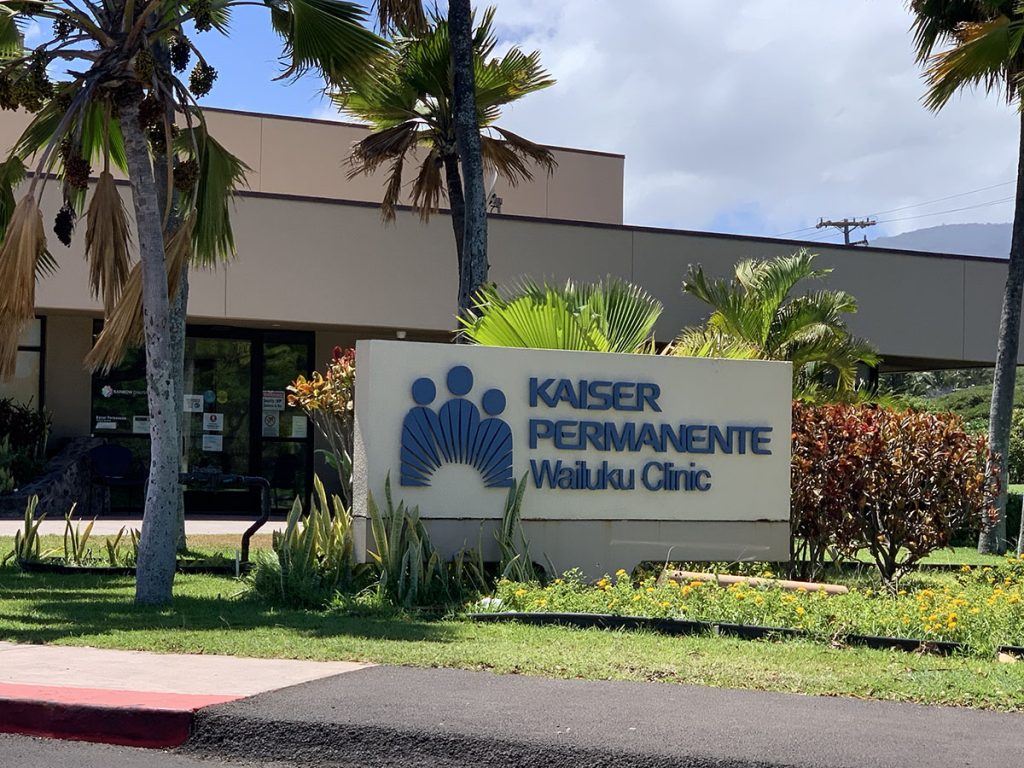Hawaiʻi Kaiser clinicians poised to strike over dangerous lack in mental health services

Amid a huge spike in demand for mental health services in Hawaiʻi, Kaiser Permanente mental health professionals will strike this week over severe staff shortages and dangerously long waits for patients to get care.
The three-day strike is slated for Wednesday through Friday at medical facilities throughout the state, according to a news release by the union that represents Kaiser health care workers in Hawaiʻi and in California.
Kaiser psychologists, licensed clinical social workers, medical social workers, psychiatric nurses and chemical dependency counselors in Hawaiʻi will strike in an effort to force the health maintenance organization (HMO) to “both raise standards and better address the growing demand for mental health services,” the release said.
Kaiser Permanente and the National Union of Healthcare Workers, which represents approximately 50 mental health professionals in Hawaiʻi, are negotiating an initial collective bargaining agreement. Kaiser Permanente issued a statement saying, “We continue to bargain in good faith and are committed to reaching a fair and equitable agreement… Unfortunately, NUHW leadership has taken the unproductive action of issuing a strike notice for May 18. Kaiser Permanente continues to believe the best place for us to resolve our differences is at the bargaining table.”
Kaiser officials confirmed to Hawaiʻi regulators that the HMO is dramatically understaffing its mental health services, forcing patients to endure dangerously long waits for care.
“Kaiser executives are making it crystal clear that mental health care does not matter to them,” Rachel Kaya, psychologist at Kaiser Permanente Maui Lani clinic, said in the release. “As a therapist, my caseload is five times what it should be, and my patients can’t get the care they’re paying to receive. The problem isn’t that there are too few mental health clinicians in Hawaii; the problem is that Kaiser doesn’t want to pay to provide the level of mental health care that its members need.”
The release said Kaiser is infamous for failing to provide adequate mental health care. The HMO has been fined $4 million and forced to accept outside monitoring by state authorities in California for delays and denials of mental health care that Hawaiʻi’s patients have endured for years.
According to Kaiser Permanente, there is a national shortage of mental health clinicians that was already a challenge before the pandemic, and over the past two years the demand for care has increased everywhere.
“We have been taking action to address the shortage of caregivers and to ensure care is available to our members. We are actively working to recruit new therapists here in Hawaii and across the country. We have significantly expanded our ability to provide virtual care to patients who want it, increasing convenience and access. We also continue to scale up our collaborative care programs that have proven to effectively treat patients with anxiety and depression diagnoses,” according to a May 12 statement issued by KP.
All of this while the demand for mental health care has skyrocketed, largely due to anxiety and depression spurred by isolation and economic stressors from the pandemic.
Yet Kaiser has refused to make changes at the bargaining table that would help improve access to care, the release said.
Kaiser reported an $8.1 billion net profit last year with $56.7 billion in cash and investments.
Despite its strong financial footing, Kaiser has rejected proposals by clinicians to increase staffing and improve access to care, the release said.
The National Union of Healthcare Workers represents more than 16,000 healthcare workers in California and Hawaiʻi, including 58 Kaiser mental health providers who provide treatment to 266,000 Kaiser enrollees at seven medical facilities and a call center on Oahu, Maui and the Big Island.
Kaiser Permanente said the notice does not necessarily mean a strike will take place. “However, we take any potential disruption of services very seriously and are working on contingency plans to ensure our members and patients continue to receive safe, high-quality care.”
KP advises that patients with existing appointments, prior to May 18th should keep their appointments. If there are changes in services, patients will be contacted.
“We have the greatest respect and gratitude for our mental health professionals, and we are dedicated to supporting them in their important work,” according to the statement from Kaiser Permanente. “We urge our employees to reject the union’s call for a strike, continue to focus on providing high-quality care, and work with us through the bargaining process to finalize a new agreement.”
*This story was updated to include comment from Kaiser Permanente.












